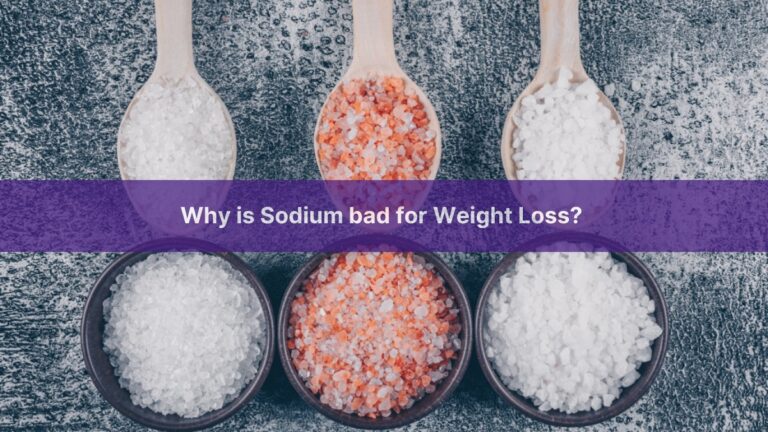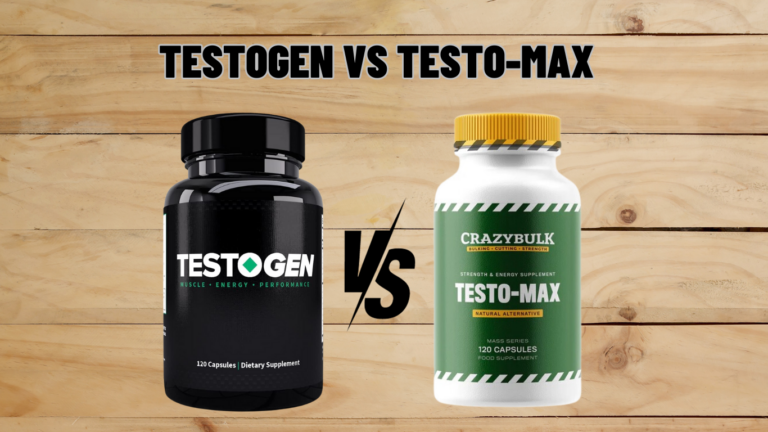How Does Magnesium Help With Weight Loss? Know Science!

As an essential mineral, magnesium plays many important roles in your body. Magnesium is required for over 300 enzyme reactions in the body, including many that regulate metabolism and blood sugar levels. Optimizing magnesium intake can support weight loss through its effects on these critical physiological processes. But can getting enough magnesium also help you lose weight?
Let’s explore the science behind weight loss and magnesium, including how it impacts key factors like metabolism, inflammation, and more.
How Magnesium Can Support Weight Loss Goals
Magnesium is a mineral found throughout your body, with more than half stored in your bones. It participates in over 300 enzyme reactions to help regulate key processes like muscle and nerve function, blood glucose control, blood pressure, and energy production. As an electrolyte, magnesium also helps balance fluids and conduct electrical impulses in your body. With magnesium involved in so many vital functions, it’s clear this mineral is crucial for overall health. However, emerging research also suggests optimal magnesium levels could help support healthy weight loss.
How Magnesium Influences Factors Related To Weight Loss
While magnesium won’t directly melt fat off your frame, studies show it may influence several factors connected to obesity:
Inflammation – Research links low magnesium intake to higher levels of chronic inflammation and inflammatory markers like C-reactive protein. Ongoing inflammation can interfere with weight loss.
Blood Sugar – Higher magnesium intake is associated with a lower risk of insulin resistance and type 2 diabetes. Proper blood sugar control aids weight management.
Insulin Sensitivity – Magnesium may help optimize insulin function and sensitivity. This helps regulate fat storage and metabolism.
Gut Health – Magnesium deficiency can modify the gut microbiome in ways that promote obesity. A healthy gut microbiome correlates with easier weight loss.
So, by supporting healthy blood sugar, reducing inflammation, and contributing to a robust microbiome, optimal magnesium levels can complement weight loss efforts.
Top Magnesium-Rich Foods
One of the best ways to get your daily magnesium is through a balanced, healthy diet. Some foods particularly high in magnesium include:
Dark Leafy Greens – 1 cup of cooked spinach provides 157mg of magnesium.
Nuts and Seeds – 1 ounce pumpkin seeds has 151mg magnesium.
Legumes – 1 cup of cooked soybeans has 148mg of magnesium.
Whole Grains – 1 cup of cooked quinoa contains 118mg of magnesium.
Dairy – 1 cup of milk contains 34mg of magnesium.
Fatty Fish – 3 ounces of salmon contains 53mg of magnesium.
Focus on getting a variety of magnesium-rich foods in proper portions as part of your nutrition plan.
Magnesium Supplements
If diet alone can’t provide your daily magnesium needs, a supplement may help fill the gap. Forms like magnesium oxide, chloride, citrate and gluconate may provide extra support for healthy blood sugar, metabolism, and reduced fluid retention.
Always follow dosage directions and talk to your doctor before starting any new supplement, especially if you have underlying health conditions or take medications that could interact. Magnesium supplements alone won’t directly cause weight loss if lifestyle factors like nutrition and exercise aren’t addressed.
Lifestyle Changes For Weight Management
For successful, sustainable weight loss, make sure to build in these healthy lifestyle habits:
- Balanced nutrition with lean proteins, fibre-rich produce, whole grains, and healthy fats
- Portion control to avoid oversized meal portions.
- 150 minutes per week of moderate exercise plus strength training.
- 7-9 hours of sleep nightly to regulate appetite hormones.
- Hydration through plenty of water and limited sugary drinks
- Stress management to prevent inflammation and emotional eating.
Potential Side Effects Of Magnesium
When taken correctly, magnesium supplements are generally well tolerated. But there are some potential side effects to be aware of including abdominal cramping, nausea, diarrhea, irregular heartbeat, muscle weakness and fatigue. Taking very high doses above the recommended amount can also lead to magnesium toxicity resulting in more serious symptoms. To avoid negative side effects, it is important to always follow dosage directions and not exceed the recommended amount of magnesium from your supplement. Sticking to the proper dosing is key to ensuring magnesium supplements are safe and that you can gain benefits without experiencing adverse effects.
Sustainable Weight Loss
Steady, gradual weight loss is more likely to last long-term. For healthy weight loss, strive for gradual fat loss of 1-2 pounds per week by creating a modest calorie deficit and increasing your physical activity. Expect that it may take a few months to healthfully reach your goals. Making small, incremental lifestyle changes is better than extreme, rapid weight loss diets that aren’t built to last. Patience and persistence pay off.
The Bottom Line
Research suggests magnesium alone won’t directly result in weight loss. However, supporting healthy magnesium levels may help remove obstacles hindering weight management for some people. By optimizing key functions related to inflammation, blood sugar, insulin, and gut health, magnesium lays the groundwork for weight loss to be more achievable when combined with proper lifestyle changes.
Frequently Asked Questions (FAQs)
1. What Foods Are High In Magnesium For Weight Loss?
Some top magnesium-rich foods to include for weight loss are dark leafy greens, nuts, seeds, beans, whole grains, soy foods, dairy, and fatty fish. Aim for a balanced plate with plenty of these magnesium sources.
2. What Is The Best Magnesium Supplement For Weight Loss?
Forms like magnesium oxide, chloride, citrate, and gluconate may aid weight loss goals, but always follow dosage directions and talk to your doctor. Don’t take magnesium alone hoping for weight loss.
3. How Much Magnesium Should I Take Daily For Weight Loss?
There is no established dose for magnesium and weight loss specifically. Get your RDA of 310-420 mg based on age and gender. An appropriate magnesium supplement may provide extra support when paired with proper diet and exercise.
4. Can Magnesium Cause Weight Gain If Taken Incorrectly?
Taking extremely high doses of magnesium could potentially lead to short-term water retention and weight gain. Always follow dosage guidelines and get a doctor’s approval for magnesium supplements to avoid adverse effects.
5. How Long Does It Take To See Results From Magnesium?
There are no guarantees magnesium will directly lead to weight loss. Focus on overall healthy lifestyle changes and allow 2-3 months to evaluate progress. Magnesium levels can impact factors like blood sugar which influence weight.






